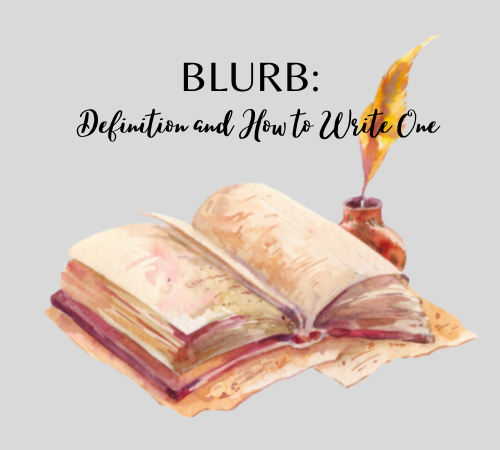When it comes to marketing work, few things are as critical as a well-written book blurb. True, the cover design arouses curiosity. However, after you have piqued a reader’s interest, the blurb is what will sell your book- and convert readers.
What is Blurb?
It is a brief promotional text that is attached to creative work. The author or publisher might write it, or it could be a quote from another source. A blurb was initially printed on the back or rear dust jacket of books but made its way to online portals and news websites. It may serve as an introduction to a newspaper or book.
It may include quotations from the work, the author, the book publisher, reviews, or fans, a synopsis of the narrative, an author biography, or simply assertions about the work’s significance.
Do’s and Don’ts of Writing a Book Blurb
DO
- Create suspense around the central conflict.
- Introduce your protagonist immediately by diving in.
- Keep it brief and crisp.
- If it pertains to your book, include your book-writing or professional position.
DON’TS
- Do not divulge any spoilers, regardless of how tempted you are.
- Provide an overview of the first chapter.
- Introducing your material with “In a world” or any other overused term.
- Give everything away.
- Express admiration for your book.
- Contrast your work with that of other authors or your book with that of other books.
Writing A Book Blurb
The blurb’s beginning must be very dynamic and crisp. Many novice writers have an impulse to ensure that readers comprehend everything that occurred in the book’s world before the start of the real narrative; that is often incorrect.
Therefore, if your blurb should not set the scene for a reader ready to delve into your book, what should it do?
Without further ado, here are steps in writing a book blurb.
1. Introduce your protagonist (s).
Novels are fundamentally a narrative medium, which means that your blurb must focus on people. If they are aware of it or not, readers scan the summary to determine whether they want to spend time with your key characters. They do not need to know their whole history, though; they need to grasp how they fit into the story’s central struggle.
2. Establish the backdrop for your central conflict.
The central tension of your narrative is what propels it forward. It’s Harry Potter battling Voldemort and his henchmen, FBI Agent Clarice Starling bargaining with Hannibal Lecter, or Captain Ahab’s obsession with a whale. Without a real-world struggle, readers will be unable to dig their teeth into the narrative.
While it’s tempting to speak about “inner journeys” in your blurb, this is often a bad idea. While a character’s intriguing internal struggles may be an element of the book that readers love, they make for poor blurb material.
“Your main conflict must exist inside the confines of your manuscript’s physical world,” adds Heyman. “This is not to suggest that character arcs are not necessary components of what makes a narrative interesting, but they are unlikely to captivate the majority of readers.”
“If we’re talking about Kafka’s Metamorphosis, the tale serves as a grand metaphor for the human condition, in which so much occurs under the surface. However, if we’re writing a blurb, we need to discuss the struggle that occurs in the story’s physical world — which in this instance is, ‘A man awakens as a bug.'”
3. Outline the stakes.
A battle devoid of repercussions lacks drama. A blurb that reads, “Jack Ryan has 24 hours to rescue the Russian ambassador” is not nearly as compelling until we understand what is at stake: “…his failure will result in a certain nuclear holocaust.”
4. Demonstrate to the reader why this book is right for them.
The majority of readers have a general notion of the book they want to read next. A well-crafted blurb will not attempt to market the book to everyone; instead, it will assist individuals who already desire a book like yours in understanding that it is for them.
Are you looking for a literary agent? Handing your book to publishers is a daunting task. However, companies like Quantum Discovery can help you with your needs when it comes to having your book delivered to the right publisher. Contact our professionals by calling (888) 755-6875 or visit quantumdiscovery.net to know more.
